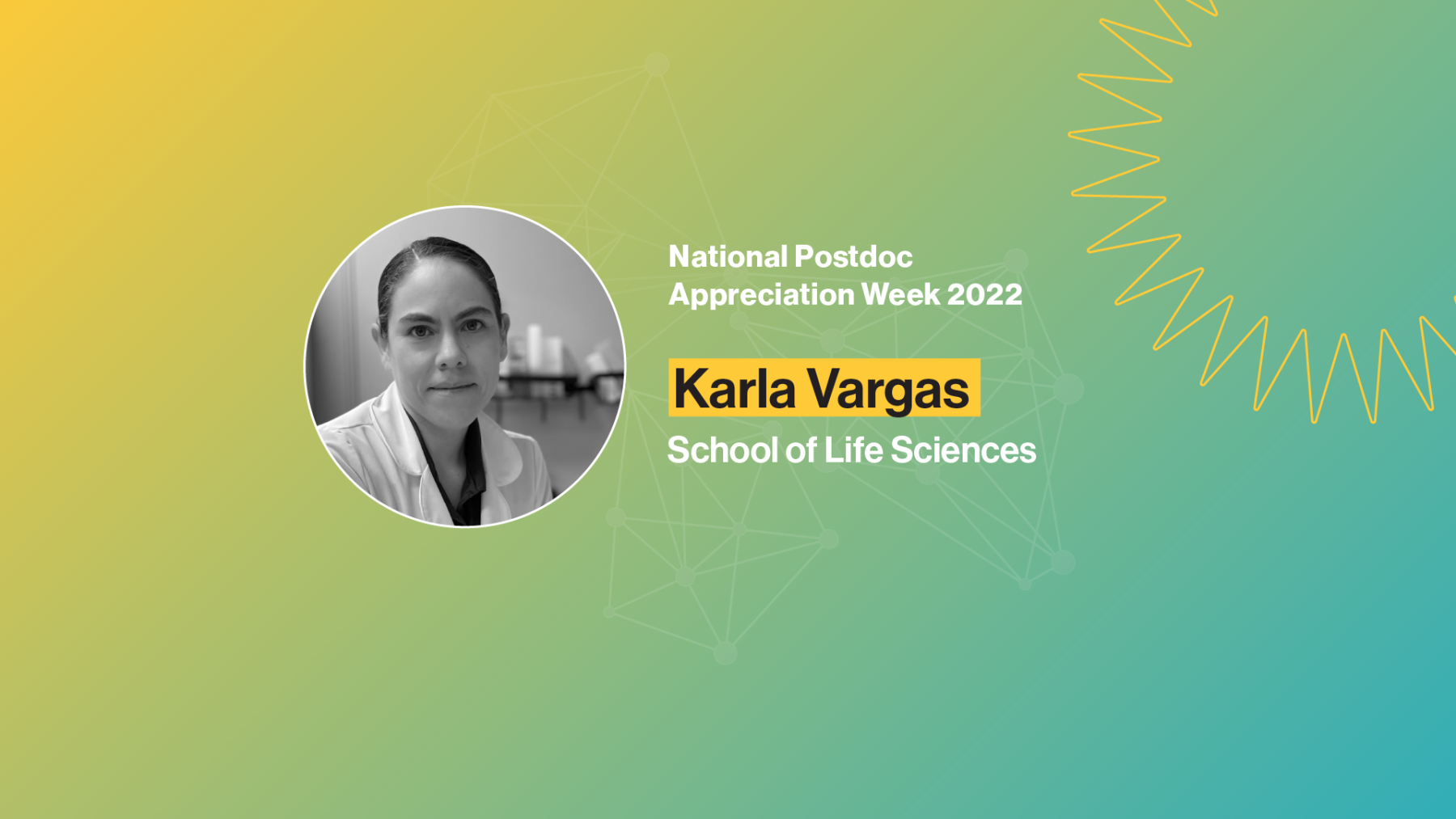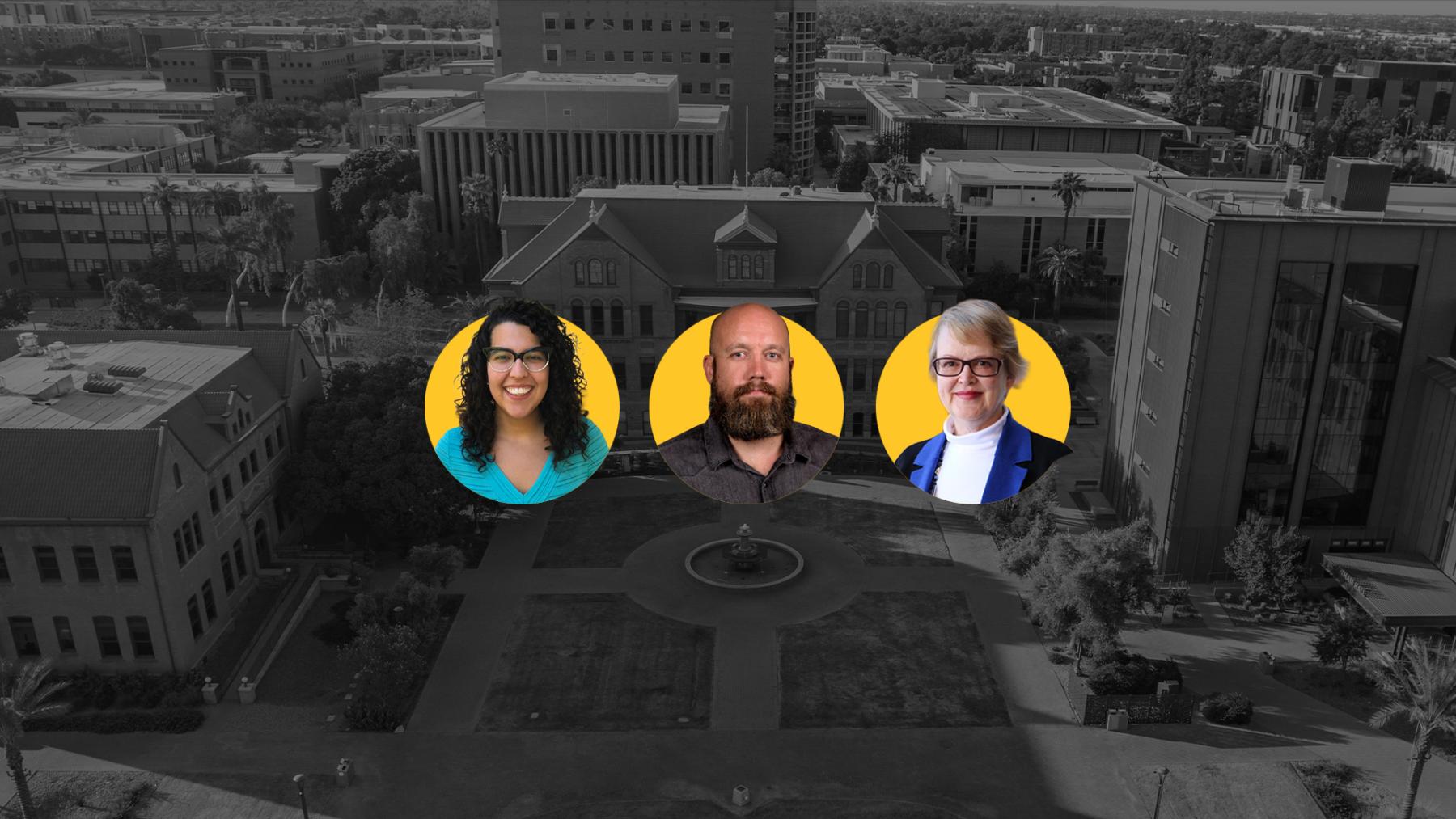
Postdoc Profile: Karla Vargas
National Postdoc Appreciation Week (NPAW) celebrates the significant contributions postdocs make to research and discovery, both university and nationwide. This Postdoc Profile is a part of a series to commemorate NPAW which takes place from September 15 to 23, 2022.
Q: What is your name?
Karla Vargas
Q: Where are you from?
Peru
Q: Where do you work at ASU?
School of Life Sciences
Q: Where did you earn your doctorate?
The University of Arizona
Q: What does your research focus on?
My current research focuses on host-virus dynamics and viral diversity associated with wild populations of vertebrate species across the Baja California peninsula and the Sonoran Desert in Arizona.
Q: Can you tell us a little bit about yourself?
I enjoy the outdoors and I love Arizona because is so diverse and unique!
Q: What are your career goals?
I want to continue doing exciting research by applying viromic and genomic approaches to answer important questions that will help the conservation of wildlife.
More stories from the Graduate Insider

Graduate education is an adventure
About eighteen months ago, I set out on a journey walking the islands of the Dodecanese during a sailing trip in Türkiye and Greece with several friends. Along the way, I found winding paths, timeless villages and breathtaking views of sea and sky. That experience got me thinking about how adventure shows up in other parts of life, especially in learning.

From practice to presentation: How to deliver a winning faculty job talk
Giving a job talk can feel like the most high-stakes presentation of your academic job search. It’s not just a research seminar—it’s your opportunity to demonstrate vision, communication skills, and fit within a department. In a recent Lunch and Learn, faculty members Associate Professor in School of International Letters and Cultures, Anita Huizar-Hernandez, Professor in School of Life Sciences Jeffrey Jensen, and Professor in Department of Physics Patricia Rankin shared concrete strategies to help graduate students and postdocs succeed as future faculty candidates.

Mentoring matters: Mentoring students through impostor syndrome
Graduate education can be an exhilarating journey — but for many students, it also brings moments of self-doubt and uncertainty. In our recent Mentoring Matters panel, “Mentoring Students Through Impostor Syndrome,” Graduate College Senior Associate Dean Dr. Lisa Anderson sat down with Dr. Rebecca Wachs, Associate Professor in the School of Biological and Health Systems Engineering, and Dr.